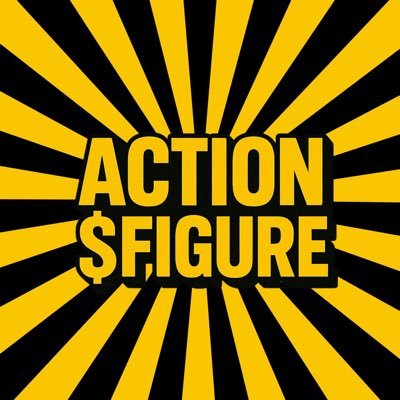
Coin-related
Price calculator
Price history
Price prediction
Technical analysis
Coin buying guide
Crypto category
Profit calculator
What is Forta (FORT)?
Forta basic info
What Is Forta?
Forta is a decentralized network designed to enhance security and operational efficiency in the blockchain ecosystem. It functions as a real-time monitoring layer, vigilantly scanning public blockchains for potential threats, anomalies, and noteworthy events. This innovative platform is particularly crucial in the rapidly evolving Web3 landscape, where security and timely detection of risks are paramount.
At its core, Forta is built around the concept of decentralized surveillance, akin to a vast network of digital security cameras. It leverages the collective efforts of a community of Web3 developers and security experts, who develop thousands of detection bots. Each bot is uniquely programmed to monitor specific on-chain activities, ranging from generic threats like phishing attacks and rug pulls to protocol-specific activities in various DeFi platforms. This collaborative approach ensures a comprehensive and dynamic defense mechanism against a wide array of digital threats.
Resources
Official Documents: https://docs.forta.network/en/latest/
Official Website: https://forta.org/
How Does Forta Work?
Forta's operational framework is centered on two primary components: detection bots and scan nodes. Detection bots are akin to digital sentinels, each crafted by developers to monitor specific conditions or activities on the blockchain. These bots vary in complexity; some may track simple conditions like large transactions, while others employ advanced heuristics and machine learning models to detect intricate scam activities. When a bot identifies its programmed condition, it emits an alert, signaling potential threats or noteworthy events.
To maintain network integrity and prevent malicious activities, developers are required to stake a minimum amount of FORT tokens on each detection bot they publish. This staking mechanism serves as an economic security measure, ensuring that bots contribute positively to the network. Bots failing to meet the minimum stake requirement remain inactive, thus safeguarding the network from spam or harmful bots.
Scan nodes, the second critical component, function as the backbone of the Forta Network. These nodes can be thought of as servers that provide the necessary infrastructure for running detection bots. They are responsible for supplying blockchain data to the bots and broadcasting any alerts generated. Anyone can operate a scan node, provided they stake the required amount of FORT tokens. This staking requirement holds node operators accountable and encourages them to act in the network's best interest. The Forta Network supports various EVM blockchains, including Ethereum, Polygon, and BNB Chain, with each scan node assigned a set of detection bots to manage.
What Is FORT Token?
FORT is the main token of the Forta Network, serving multiple essential functions. The token plays a pivotal role in the network's economic security model, where both scan node operators and detection bot developers must stake FORT tokens. This staking mechanism acts as a deterrent against malicious actions. FORT tokens are used in several ways within the Forta Network:
- Scanner Pool Staking: Operators must stake FORT tokens to make their pools discoverable and provide economic security for their work. Delegators can also stake on these pools, subject to similar rules and potential deductions if the pool is penalized.
- Detection Bot Staking: Developers stake FORT tokens on their bots, signaling quality and providing a resistance mechanism against Sybil attacks.
- Payment for Data and Services: Users who wish to access data from the Forta Network, including its General Plan or premium feeds, pay fees denominated in FORT tokens. This payment system ensures a consistent and integrated economic model within the network.
- Governance Participation: FORT token holders can engage in governance decisions, influencing the network's evolution and policies.
The total supply of FORT tokens is capped at 1 billion, with a significant portion held by the Forta Foundation for community allocation. This allocation supports various community initiatives, including rewards for node operators, grants for developers, and funding for academic research. Other allocations of FORT tokens are distributed among backers, initial core contributors, and OpenZeppelin, all subject to vesting periods and transfer restrictions to ensure long-term commitment and stability.
What Determines Forta’s Price?
The price of Forta's native token, FORT, like many cryptocurrencies, is influenced by a complex interplay of factors within the blockchain and cryptocurrency markets. Key among these is market demand and supply dynamics, a fundamental economic principle that also applies to digital assets. Demand for FORT is driven by its utility within the Forta Network, where it is used for staking by node operators and detection bot developers, paying for data services, and participating in governance decisions. As the Forta Network grows in popularity and usage, especially in the burgeoning field of blockchain security and monitoring, the demand for FORT is likely to increase, potentially driving up its price. Conversely, an oversupply or reduced demand, possibly due to emerging competitors or shifts in blockchain security trends, could lead to a price decline.
Another critical factor is investor sentiment, heavily influenced by the overall perception of the Forta Network's effectiveness and reliability in providing real-time security intelligence in the blockchain space. Positive developments, such as successful partnerships, technological advancements, or increased adoption by prominent blockchain projects, can bolster investor confidence, leading to price appreciation. On the other hand, negative news or security incidents within the Forta ecosystem could adversely affect investor sentiment, impacting the token's price. Additionally, broader market trends in the cryptocurrency sector, regulatory changes, and macroeconomic factors also play a significant role in shaping the price trajectory of FORT. As with any cryptocurrency, potential investors should be aware of the inherent volatility and conduct thorough research.
For those interested in investing or trading Forta, one might wonder: Where to buy FORT? You can purchase FORT on leading exchanges, such as Bitget, which offers a secure and user-friendly platform for cryptocurrency enthusiasts.
FORT supply and tokenomics
Uniqueness
Forta comprises a decentralized network of independent node operators that scan all transactions and block-by-block state changes for outlier transactions and threats. When an issue is detected, node operators send alerts to subscribers of potential risks, which enables them to take action.
Leveraging Forta, developers can build detection bots and machine learning models, and run them on the decentralized Forta network to uncover anomalous activity on every blockchain transaction.
Forta will be secured and governed by smart contracts and the use of the $FORT utility and governance token.
Links
What is the development prospect and future value of FORT?
The market value of FORT currently stands at $34.83M, and its market ranking is #572. The value of FORT is not widely recognized by the market. When the bull market comes, the market value of FORT may have great growth potential.
As a new type of currency with innovative technology and unique use cases, FORT has broad market potential and significant room for development. The distinctiveness and appeal of FORT may attract the interest of specific groups, thereby driving up its market value.
Is FORT worth investing or holding? How to buy FORT from a crypto exchange?
How to get Forta through other methods?
What is Forta used for and how to use Forta?
Learn about other cryptos









































